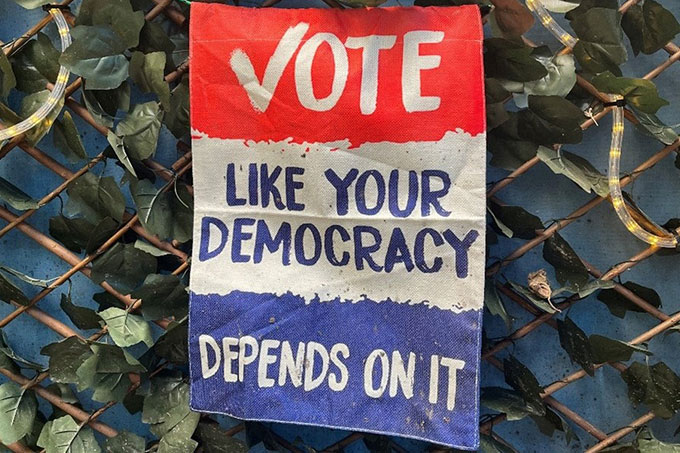Dr Susan Kenyon reflects on the differences between UK and US elections.
I’m just back from Philadelphia, ‘the city of brotherly love’.
Some of you will know Philadelphia from 3 movies, 2 sitcoms, or a sandwich.
Those of us who follow American politics (and if you are reading this blog, I know that’s you!) know that Philadelphia and its state, Pennsylvania, have been and remain the most consequential city and state in US and, therefore, world politics.
I was overwhelmed to see the room where the Declaration of Independence and the U.S. Constitution were both signed. And I was equally thrilled to experience the excitement of being in the city at the time of the first (and possibly only) Presidential candidates’ debate, between Kamala Harris and Donald Trump.
Pennsylvania is a swing state. This means that, unlike in most US states, the vote between the two candidates is very close. Whoever wins in Pennsylvania is likely to win the Presidency.
Being in the state allowed me to see the stark differences between how America and the UK ‘do’ democracy.
The most noticeable difference is in the volume of advertising. Across all the television channels that I saw, advertising breaks were dominated by messages from political action committees. In the street, on posters, electronic message boards, clothing, it was impossible to escape paid-for advertising – and a fair amount of non-paid-for advertising, too.
I felt that I was swimming in the election. I wonder how much these adverts cut through and influence, increasing democratic participation, or if they contribute to voter fatigue and America’s chronically low voter turnout?
My second observation is about the cost of this advertising. Observers estimate that it costs $1 billion dollars to run for President and that the 2024 election cycle will cost $16 billion. How democratic is this? What does this mean for equal participation in government?
Finally, I was shocked by the negativity. After five days, from advertising and news broadcasts, I learnt nothing about what candidates would do. I only knew what their opponents wanted me to fear they would do. How does this negativity and lack of information affect democratic participation and informed choices? As I teach our students, democracy can be interpreted and operationalised in many different ways and, as many politicians and scholars before me have highlighted, it is imperfect and flawed. But what is the alternative? How can we make democracy better, for all?
Dr Susan Kenyon is a Principal Lecturer in Politics.
Photo credit: © Susan Kenyon 2024.
 Expert comment
Expert comment Jeanette Earl
Jeanette Earl 2394
2394


